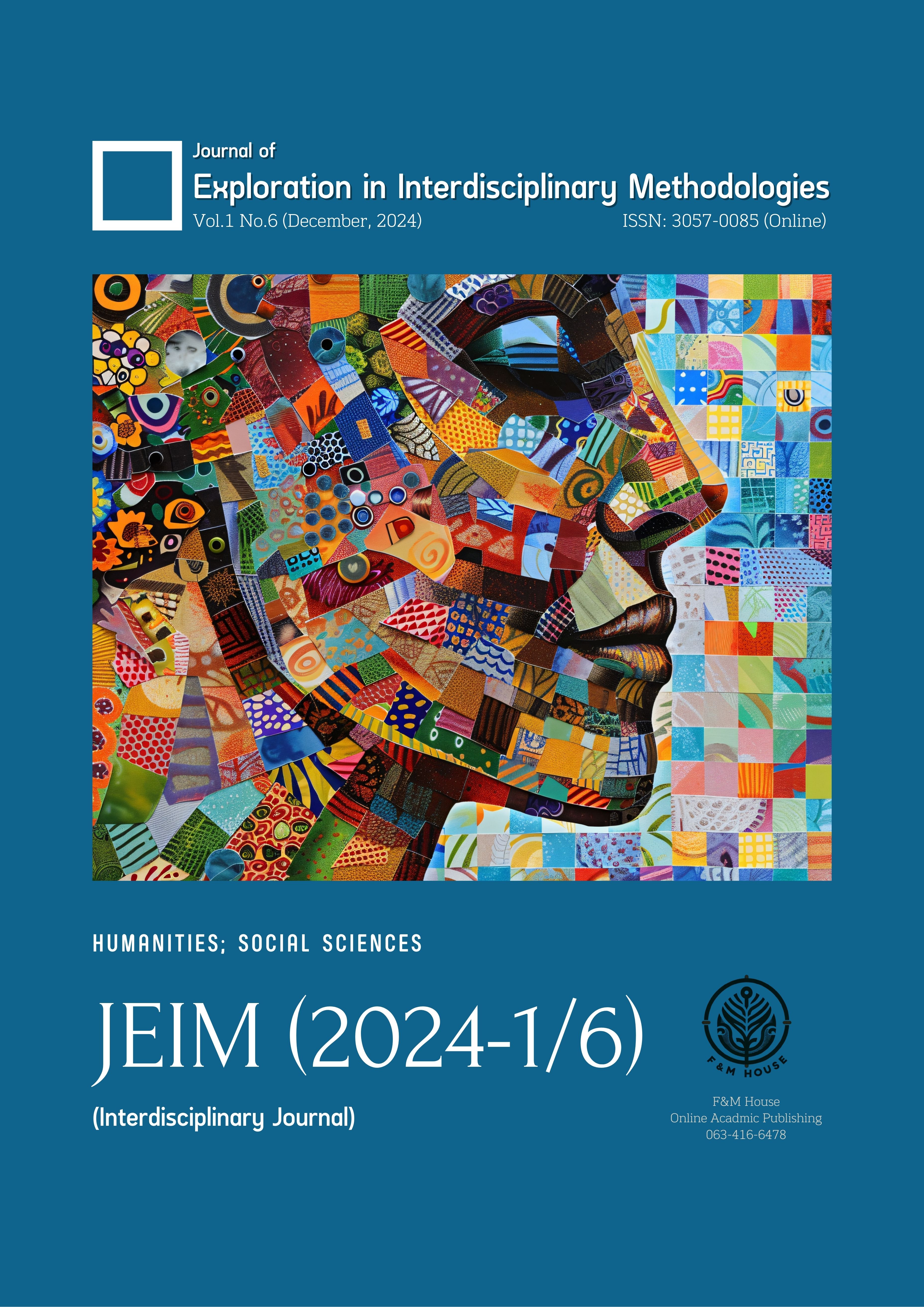The Influence of Family Structure on Child Development: A Psychological Study of Thai Family Dynamics
คำสำคัญ:
Family structure, child development, Thai culture, parenting styles, psychological well-beingบทคัดย่อ
This study explores the influence of family structure on child development within Thai cultural contexts, focusing on the psychological, emotional, and social dimensions. It examines the impact of diverse family types—nuclear, extended, single-parent, and blended—on children's cognitive, emotional, and behavioral outcomes. Utilizing frameworks like systems theory and attachment theory, the research underscores how cultural norms, parenting styles, and socio-economic factors shape child development. By investigating traditional Thai values, modern family dynamics, and the role of gender and Buddhism, the paper highlights the complex interplay between family environment and developmental outcomes. The findings provide insights for policymakers and practitioners to design culturally sensitive interventions that foster healthy child growth.
เอกสารอ้างอิง
Amirah, J. (2024). Polygamy in Brunei: Examining the family structure and experiences of half-siblings. Institute of Asian Studies, Universiti Brunei Darussalam. Retrieved from https://ias.ubd.edu.bn/wp-content/uploads/2024/08/working_paper_series_80.pdf
Angela, A., & Walker, J. (2013). Contemporary issues in family studies. John Wiley & Sons. Retrieved from https://play.google.com/store/books/details?id=TWwjAQAAQBAJ&source=gbs_api
Angela, C. H., & Allen, K. R. (2016). Family theories. John Wiley & Sons. Retrieved from http://books.google.com/books?id=Tym9DAAAQBAJ&source=gbs_api
Anjalee, C. (2020). Youth culture and identity in Northern Thailand. Routledge. Retrieved from https://play.google.com/store/books/details?id=DgPpDwAAQBAJ&source=gbs_api
Bhubate Samutachak (2024). Future Scenarios for Thai Families in 2040. Institute for Population and Social Research, Mahidol University. Retrieved from https://social.desa.un.org/sites/default/files/Paper%20Bhubate%20Samutachak.pdf
Bornstein, M. H., & Bradley, R. H. (2014). Socioeconomic status, parenting, and child development. Routledge. Retrieved from http://books.google.com/books?id=iA-QAgAAQBAJ&source=gbs_api
Chuleerat, C. (2023). Human welfare organizational behavior: A perspective for early childhood education services. Corporate Governance and Organizational Behavior Review, 7(4, Special Issue), 289–298. https://doi.org/10.22495/cgobrv7i4sip7
Dararatt, A., & Duanpen, T. (2023). Family supports between older parents and adult children in Thailand. The International Academic Forum. Retrieved from https://papers.iafor.org/wp-content/uploads/papers/agen2023/AGen2023_68786.pdf
Guerda, N., Bejarano, A., & Lee, D. L. (2015). Contemporary parenting. Routledge. Retrieved from https://play.google.com/store/books/details?id=NgOpCgAAQBAJ&source=gbs_api
Kurfürst, S., & Wehner, S. (Eds.). (2020). Southeast Asian transformations: Urban and rural developments in the 21st century. transcript Verlag. https://doi.org/10.14361/9783839451717
Liz, W. (2013). Family in Buddhism. State University of New York Press. Retrieved from https://play.google.com/store/books/details?id=a7ZIpWrB6gMC&source=gbs_api
Leo P. Chall (1995). Sociological Abstracts. Retrieved from http://books.google.com/books?id=lpfZAAAAMAAJ&dq=Influence+of+family+structure+on+child+development+importance+in+Thai+family+dynamics&hl=&source=gbs_api
Leo P. Chall (2002). Sociological Abstracts. Retrieved from http://books.google.com/books?id=OYjZAAAAMAAJ&dq=Influence+of+family+structure+on+child+development+in+Thailand:+Overview+of+Thai+family+dynamics+and+psychological+impacts&hl=&source=gbs_api
Maria, R. T. d. G., Jill, B., & Carolyn, P. E. (2018). Parenting from afar and the reconfiguration of family across distance. Oxford University Press. Retrieved from https://play.google.com/store/books/details?id=JnhUDwAAQBAJ&source=gbs_api
National Academies of Sciences, Engineering, and Medicine. (2019). Vibrant and healthy kids. National Academies Press. Retrieved from http://books.google.com/books?id=Y-PBDwAAQBAJ&source=gbs_api
Nugroho, B. S. (2023). Family business dynamics in Southeast Asia: A comparative study of Indonesia, Malaysia, Singapore, and Thailand. Journal of Administrative Science, 11(1), 197–218. https://doi.org/10.21512/jas.v11i1.9518
Peace Irene Kobusingye (2024). Parental stress and parenting styles during the COVID-19 lockdown in Mbarara City, Uganda. American Research Journal of Humanities & Social Science, 7 (9): 41-51. Retrieved from www.arjhss.com
Patcharawalai, W., & Jo-pei, T. (2018). Care relations in Southeast Asia. BRILL. Retrieved from http://books.google.com/books?id=c9J7DwAAQBAJ&source=gbs_api
Peson, C. (2020). Factors influencing high academic achievement of stateless migrant children in Tak Province, Thailand. University of Leicester. Retrieved from http://pstorage-leicester-213265548798.s3.amazonaws.com/23890958/2020CHOBPHONPPPhD.pdf
Polvasut, M. (2022). A model of factors affecting the efficiency of decision making to select successor in family business of Thailand. University of the Thai Chamber of Commerce. Retrieved from https://searchlib.utcc.ac.th/library/onlinethesis/319334.pdf
Rochanavibhata, S., & Marian, V. (2024). Language-dependent reminiscing: Bilingual mother-child autobiographical conversations differ across Thai and English. Cognitive Development, 70, 101445. https://doi.org/10.1016/j.cogdev.2024.101445
Sevda, B., & Ayhan, A.-K. (2009). Perspectives on human development, family, and culture. Cambridge University Press. Retrieved from http://books.google.com/books?id=ftmXPsXj6QEC&source=gbs_api
Sirada Rochanavibhata, Viorica Marian (2024). Language-dependent reminiscing: Bilingual mother-child autobiographical conversations differ across Thai and English. 70. pp. 101445. Retrieved from https://doi.org/10.1016/j.cogdev.2024.101445
Wilson, L. (2013). Family in Buddhism. State University of New York Press. Retrieved from https://play.google.com/store/books/details?id=a7ZIpWrB6gMC&source=gbs_api







